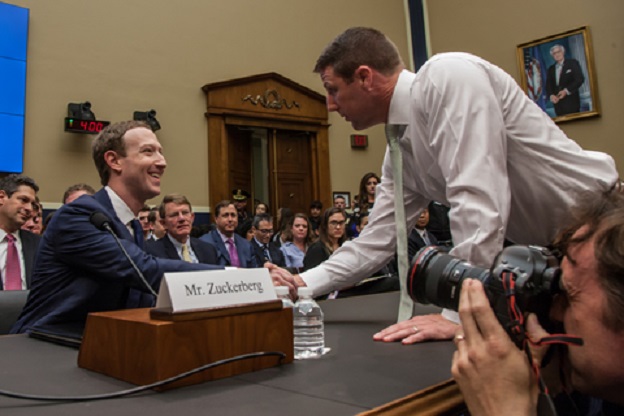By Thomas L. Knapp
Politicians lie.
Not all of them. Not every time. But most of them, from both “major” political parties, lie. A lot.
It’s not always easy to tell when they’re lying. It’s not always easy to prove they’re lying. Often, it’s not even easy to tell if they’re just lying to us or to themselves as well.
Some politicians want Facebook to stop politicians from lying. They phrase that desire as a request for Facebook to “fact check” content posted by politicians, especially political advertising.
Perhaps I’m too cynical, but I’m not sure it’s coincidence that the examples politicians offer tend to be drawn from content posted by their political opponents.
US Representative Alexandria Ocasio-Cortez (D-NY) is a notable exception. She asked Facebook CEO Mark Zuckerberg if Facebook would let her target Republican politicians by running ads falsely accusing them of voting for her “Green New Deal” proposal (Zuckerberg said he couldn’t answer “off the top of his head”).
On the other hand, AOC’s own take seems a bit naive. “So you will take down lies or you won’t take down lies?” she asked Zuckerberg. “I think this is a pretty simple yes or no.”
It isn’t.
Let’s use the Green New Deal as an example.
If a Facebook employee has to “fact check” an ad asserting that the proposal would “tank the American economy,” how should that employee evaluate the truth or falsehood of the claim?
What criteria should that employee use for deciding what “tank” means? Is slow economic growth “tanking?” Or would it take a recession or depression to meet the threshold?
Should that employee rely on analyses from the Heritage Foundation? Or perhaps from People for the American Way? Or the Congressional Budget Office? Or the Office of Management and Budget? Four sources, likely four wildly conflicting sets of claims and projections.
For a conflicting ad claiming the Green New Deal would “boost the American economy,” should that employee “fact check” the ad using the same sources as for the original ad, or different sources? Would 1% growth of GDP constitute a boost? If not, what number, applied to what metric, would?
What if both ads fail the “fact check?” Should the public just flip a coin and vote accordingly, since the two sides are forbidden to offer us their takes to evaluate and decide between for ourselves?
Politics consists of conflicting narratives. No two opposing narratives can both be true. In fact, both could be false (Spoiler: Both are probably at least partially false, intentionally or not; personal biases affect politicians’ beliefs, and ours, at least as much as facts do).
The question is not whether politicians’ claims should be fact checked. The question is who should do the checking.
In an even remotely free society, the only answer is “all of us.”
Yes, some of us will fail to accurately distinguish truth from falsehood. Some of us will get things wrong.
That’s better than one centralized “fact checking” operation getting them wrong for all of us.




Thomas L. Knapp (Twitter: @thomaslknapp) is director and senior news analyst at the William Lloyd Garrison Center for Libertarian Advocacy Journalism (thegarrisoncenter.org). He lives and works in north central Florida.
The views and opinions expressed in this commentary are those of the author and do not necessarily reflect the official position of Citizens Journal.
Get Citizensjournal.us Headlines free SUBSCRIPTION. Keep us publishing – DONATE




